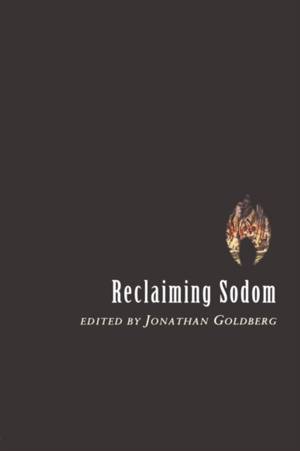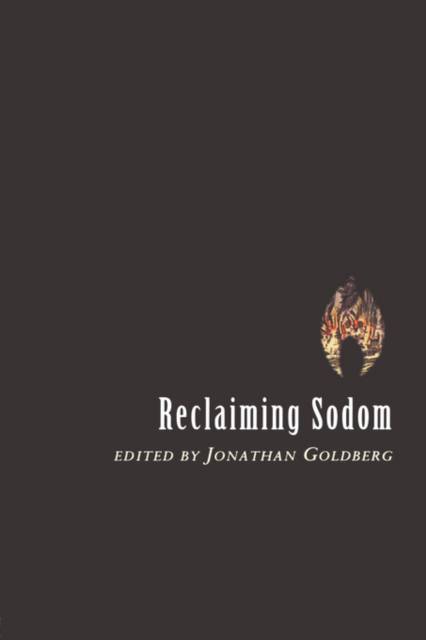
- Retrait gratuit dans votre magasin Club
- 7.000.000 titres dans notre catalogue
- Payer en toute sécurité
- Toujours un magasin près de chez vous
- Retrait gratuit dans votre magasin Club
- 7.000.000 titres dans notre catalogue
- Payer en toute sécurité
- Toujours un magasin près de chez vous
Description
Within the Judeo-Christian tradition, Sodom and Gomorrah represent locales in which threats to national formation are couched in sexual terms. The biblical narrative insists on a particular social invisibility for those sexual activities not blessed by the bonds of matrimony.
Reclaiming Sodom surveys a number of institutions that have had an interest in perpetuating these views: the police, the state, the church and the law. The collection ranges through biblical scholarship, an investigation of the Founding Fathers' beliefs, the legal mobilization towards the category of sodomy in 18th and 19th century England, and the US Supreme Court's 1986 Bowers vs. Hardwick decision. Analysis is provided of the ways in which the Judeo-Christian tradition has shaped anthropological accounts of the same-sex practices of non-Western people, as well as essays on how colonial gestures have marked lesbian identity in the Carribean, and derformed narratives about the racial geography of AIDS. Reclaiming Sodom explores alternatives to the force of the Sodomitic biblical narrative in Islamic, non-western, and western traditions, and discusses the ways in which sodomy calls into question normative definitions of sexuality and gender. The collection pursues the "pleasures and dangers" of these alternatives, and takes on Proust's refusal to imagine a social movement founded on the "stigma" of Sodom. The collection examines the relations between sex/gender identities and sexual acts in important and provocative ways, and argues for the political use and usefulness of both Sodom and sodomy. Reclaiming Sodom makes an important and controversial contribution to the literature on sexuality and gender, as well as the nature of sex in our culture.Spécifications
Parties prenantes
- Auteur(s) :
- Editeur:
Contenu
- Nombre de pages :
- 308
- Langue:
- Anglais
Caractéristiques
- EAN:
- 9780415907552
- Date de parution :
- 14-07-94
- Format:
- Livre broché
- Format numérique:
- Trade paperback (VS)
- Dimensions :
- 153 mm x 229 mm
- Poids :
- 503 g







